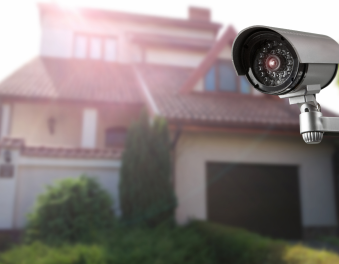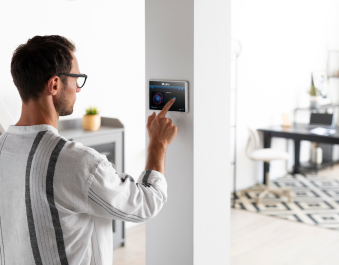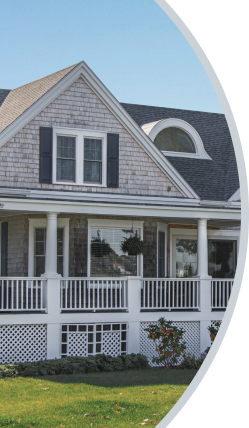Last Updated: April 26th, 2025
-
24/7 monitoring and rapid emergency response
-
Cutting-edge technology for advanced protection
-
Customizable solutions for your home
- Trusted industry leader in security (since 1874)
-
60 Days
-
Yes
-
Yes
-
Yes
-
24/7 professional monitoring
-
Mobile app gives you control from anywhere
-
Voice-activated control for smart home interaction
- Hassle-free installation
-
30 Days
-
Yes
-
Yes
-
Yes
-
24/7 monitoring for round-the-clock security
-
Reliable sensors detect any intrusion
-
Wireless technology for flexible installation
- Customizable plans for tailored protection
-
60 Days
-
Yes
-
Yes
-
Yes
-
Rapid emergency response, day or night
-
Energy-efficient solutions
-
Smart automation for home management
- Mobile app for remote control access
-
30 Days
-
Yes
-
Yes
-
Yes
-
Fast response to emergencies, always
-
Proactive alerts keep you informed constantly
-
User-friendly app for remote control
- Expert support for personalized assistance
-
30 Days
-
Yes
-
Yes
-
Yes
-
DIY system with self-monitoring
-
Smart home integration for seamless control
-
Geofencing feature enhances home security
- Quick installation
-
30 Days
-
No
-
Yes
-
Yes
-
24/7 monitoring and rapid emergency response
-
Cutting-edge technology for advanced protection
-
Customizable solutions for your home
- Trusted industry leader in security (since 1874)
-
60 Days
-
Yes
-
Yes
-
Yes

What Are Home Security Systems and How Do They Work?
Home security systems are comprehensive setups designed to protect homes from intruders, monitor for emergencies like fires or floods, and provide peace of mind to homeowners. These systems typically consist of various components like sensors, cameras, alarms, and control panels. Here’s how they work:
Sensors: Sensors are the backbone of any home security system. They come in different types such as door or window sensors, motion detectors, and glass break sensors. When these sensors are triggered by unauthorized entry or motion, they send signals to the control panel.
Control Panel: The control panel is the central hub of the home security system. It receives signals from the sensors and communicates with the monitoring center. It also allows homeowners to arm and disarm the system, view system status, and receive alerts.
Monitoring Center: Most home security systems offer professional monitoring services. When a sensor is triggered, the control panel sends a signal to the monitoring center. Trained professionals at the monitoring center then assess the situation and take appropriate action, such as contacting the homeowner or emergency services.
Alarms: Alarms are an essential part of home security systems. They can be sirens, strobe lights, or even automated phone calls or text messages to the homeowner’s smartphone. Alarms are triggered when a sensor detects an intrusion or other emergency, alerting both the homeowner and potentially deterring intruders.
Cameras: Many modern home security systems include cameras for video surveillance. These cameras can be placed both indoors and outdoors to monitor activity in and around the home. Some systems offer features like live streaming, motion-activated recording, and two-way audio communication.
Remote Access: With advancements in technology, homeowners can now access their home security systems remotely via smartphone apps or web portals. This allows them to arm and disarm the system, view live video feeds, receive alerts, and control other smart home devices from anywhere with an internet connection.

How to Choose the Best Home Security System for My Needs?
Choosing the best home security system for your needs is essential for keeping your home safe. Here’s a simple guide to help you pick the right one:
Assess Your Needs: Think about what you want your security system to do. Do you need basic protection from intruders, or do you want additional features like fire or carbon monoxide detection? Consider factors like the size of your home, your neighborhood’s safety, and whether you have pets.
Research Different Options: Look into different types of home security systems available. There are traditional systems with professional monitoring, DIY systems you install yourself, and smart home systems that integrate with other devices like cameras and smart locks. Read reviews, ask for recommendations, and compare features and prices.
Consider Features: Make a list of features that are important to you. This could include things like motion sensors, door and window sensors, cameras, smart home integration, and remote access via smartphone apps. Choose a system that offers the features you need to feel secure.
Look at Costs: Compare the costs of different home security systems, including upfront equipment costs, monthly monitoring fees, and any additional fees for installation or maintenance. Consider your budget and choose a system that offers good value for money.
Check for Reliability: Look for a reputable home security provider with a track record of reliability and good customer service. Read customer reviews and check if the company offers warranties or guarantees on their equipment and services.
Evaluate Ease of Use: Choose a home security system that’s easy to install and use. If you’re going with a DIY system, make sure the setup process is straightforward, and the system comes with clear instructions. For professionally installed systems, ask about the installation process and if there are any ongoing maintenance requirements.
Customer Support: Consider the level of customer support offered by the security provider. Can you easily reach them if you have questions or need assistance? Do they offer 24/7 support or have a mobile app for easy access to help?

What are the Most Important Features of Home Security Systems?
The most important features of home security systems vary depending on your needs and preferences, but here are some key features to consider:
Sensors: Sensors are the foundation of any home security system. Door and window sensors detect if someone is trying to enter your home, while motion sensors detect movement inside. These sensors trigger alarms and alerts to notify you of potential threats.
Professional Monitoring: Professional monitoring services ensure that someone is always watching over your home, even when you’re not there. Monitoring centers can quickly respond to alarms and dispatch emergency services if needed, providing an extra layer of protection.
Cameras: Video surveillance cameras allow you to keep an eye on your home from anywhere. They provide visual evidence of any suspicious activity and can help deter burglars. Look for cameras with features like high-definition video, night vision, and remote viewing capabilities.
Alarms: Alarms are essential for alerting you to potential threats and scaring off intruders. They can include sirens, strobe lights, or even automated phone calls or text messages to your smartphone. Make sure your security system includes loud and attention-grabbing alarms.
Smartphone Access: Many modern home security systems offer smartphone apps that allow you to control and monitor your system remotely. With a smartphone app, you can arm and disarm your system, view live video feeds, receive alerts, and even control other smart home devices from anywhere with an internet connection.
Smart Home Integration: Integration with other smart home devices can enhance the functionality and convenience of your home security system. Look for systems that can connect to devices like smart locks, lights, and thermostats, allowing you to automate tasks and improve your home’s overall security and efficiency.
Battery Backup: In case of a power outage, battery backup ensures that your security system remains operational. This feature is essential for maintaining protection during emergencies when electricity may be unavailable.
User-Friendly Interface: A user-friendly interface makes it easy to set up, monitor, and manage your home security system. Look for systems with intuitive control panels, clear instructions, and simple smartphone apps to ensure a smooth user experience.
Frequently Asked Questions
Should I choose DIY or professional installation?
DIY systems are cheaper upfront, but require technical knowledge and setup. Professional installation offers expert advice, guaranteed reliability, and 24/7 monitoring. Choose based on your budget and comfort level.
What features are important in a home security system?
Consider essential features like door and window sensors, motion detectors, and mobile app alerts. Additional features like fire monitoring, smart home integration, and video cameras can increase the cost but offer extra security.
Can I monitor the system myself?
Yes, some systems allow self-monitoring via a mobile app. This saves on monitoring fees but requires you to respond to alerts and call emergency services yourself. Professional monitoring provides quicker response and peace of mind.
Do pets trigger false alarms?
Most systems offer pet-friendly sensors that distinguish humans from animals. If you have large dogs or active cats, discuss options with your chosen provider.
Will a home security system lower my insurance?
Many insurance companies offer discounts for homes with professionally monitored systems. Check with your insurer to see if you qualify.






